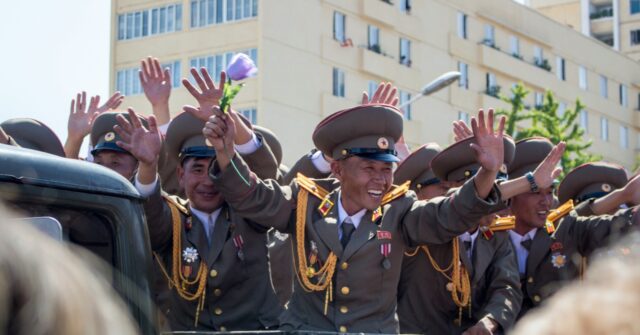Speculation surrounding the involvement of North Korean soldiers fighting alongside Russian forces in Ukraine has intensified, particularly following President Volodymyr Zelensky’s recent acknowledgment of this presence. For months, North Korea has been known to supply munitions to Russia, assisting its military operations in what it terms a “special military operation” in Ukraine. President Zelensky’s admission, made during a nightly address and reported by German newspaper Die Welt, marks a significant moment in the discourse surrounding foreign involvement in the conflict. He stated, “North Korean soldiers are fighting together with Russians,” emphasizing that the relationship between Russia and North Korea has evolved beyond mere weapons transfers to an on-ground alliance involving personnel.
This development underscores Ukraine’s urgent requests for more military assistance. Zelensky pointed out the growing alliance between Russia and North Korea and noted that the role of North Korean troops signals a need for enhanced support from Ukraine’s allies. He called for the development of relationships with partner nations to bolster military capabilities, specifically requesting modern long-range weaponry. The president stressed that the request for support goes beyond just a list of equipment; it ties directly to the ability to counter the escalating threat posed by North Korean troops aiding Russian forces.
Despite the limited transparency about North Korea’s military readiness, the country boasts one of the largest armies in the world, theoretically numbering over one million personnel. This vast military could provide a substantial advantage to the Russian forces. While many foreign fighters are present in Ukraine, the specific contribution of North Korean troops could tip the balance in Russia’s favor. However, the extent to which North Korea can mobilize its military remains uncertain, given the secretive nature of its regime and the challenges of deploying its forces abroad.
On the logistical side, North Korea’s long-standing military paradigm has provided it with an extensive stockpile of Soviet-era ammunition, which has not diminished due to the country’s consistent military focus. This contrasts sharply with military strategies of many Western nations following the Cold War, where military budgets were cut, and stockpiles were significantly reduced. Reports indicate that Russia has leaned heavily on North Korea’s ammunition reserves, with estimates suggesting that as much as half of the artillery shells now in use by Russian forces in Ukraine originate from North Korea, even though many of these munitions are old and may be unreliable.
Zelensky’s acknowledgment of North Korean soldiers marks a significant shift in official communications regarding the war. Prior to this, the issue had been largely speculative, with discussions among military experts and reports from other nations, including South Korea. The South Korean defense minister remarked that it is “highly likely” some North Korean military personnel have engaged in combat in Ukraine, potentially suffering casualties. This adds another layer to the complex relationship between North Korea and Russia, especially in the context of the ongoing conflict, where the stakes for both national and regional security are incredibly high.
The involvement of North Korean troops in Ukraine, whether as direct combatants or in support roles, raises significant concerns for the international community. It may potentially lead to a new layer of hostility and complicate the already intricate dynamics of the war. The situation reinforces Ukraine’s argument for increased military assistance from Western allies, which Zelensky advocates as critical to counteracting the enhanced capabilities that foreign troops, including North Koreans, bring to the Russian front. As the situation unfolds, these developments may shape the future of military engagements in Ukraine and influence broader geopolitical relations in the region.

